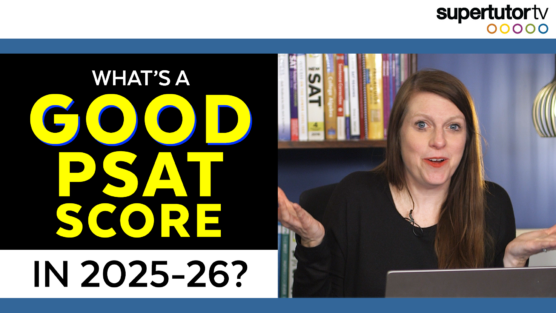Breaking news: China just outlawed for profit tutoring in school subjects. To help you understand the impact of this new policy, let me lay out some facts for you. Studies show that 75% of families in China use private tutoring services. They spend, on average, $17,400 per year on after-school tutoring, with some families spending upwards of $40,000 per year. In one study done by China Education Daily, 92% of 4,000 parents surveyed enrolled their kids in extracurricular lessons, and more than half spent over 10,000 yuan per year on said lessons. Crazy, isn’t it? Let’s get into the breakdown of the situation.
The Situation
China is one of the biggest tutoring markets in the world, and it’s started cracking down on private tutoring. Companies are no longer allowed to teach general school subjects like math or English in a for-profit, after-school setting; in other words, they have to all be non-profit now. The government is also going to be creating regulations to limit class scheduling, such as banning courses in the evenings and on weekends, as well as to limit the cost of courses.
Why Ban Tutoring?
If tutoring is so popular in China, why would the government want to ban it? First, we need some background information on why everyone “loves” tutoring so much.
The number one reason for all the extraordinary spending on tutoring is the gaokao. It’s an examination that comes at the end of students’ high school careers, and the score determines where they are eligible to go to college. Basically, all you have to do to get into college in China is get a great gaokao score. Easy, right? Not so when you’re in a country where 11 million students apply to college each year, and only 1.9% can go to elite colleges. Factor in the extreme cultural pressure on getting into those elite colleges, and it becomes clear why so many parents are dumping their life savings into tutoring programs.
Let’s do a little comparison to help you really feel the situation there. In America, colleges use a holistic admissions system. That means in addition to your test scores, your GPA, activities, and letters of recommendation all factor towards your admissions decision. Because you are not just your test score, there are different ways to prove yourself worthy of the colleges you’re applying to and get that admissions officer’s approval. On top of that, just over 1 million students compete for spots at American universities each year. Top colleges like Stanford and Harvard are still very competitive, but the majority of American colleges let in over half of all applicants. You’ve got a good shot at going to college, and if that doesn’t work out, there’s always community college.
Okay, now let’s get back to the why behind China’s new tutoring policy. The government has admitted in the past that the tutoring frenzy is getting out of hand. Not only are parents spending exorbitant sums, but students often spend all their time outside of school going to tutoring sessions, sometimes until as late as midnight or 1 AM. However, instead of believing that the country is watching out for the well-being of its youth, most people point to a different reason for the Chinese government’s change of heart: the falling birth rate.
Before 2016, China had what was known as the one-child policy. Families in most major metropolitan areas were only allowed to have one child; if they had more, they needed to pay a hefty fine. This dissuaded most people from having more children (though some people in rural areas were allowed a second child). Now, the Chinese government allows families to have up to two children, even three in some cases, yet the Chinese birth rate is only 1.2 births per female. For comparison, there are 1.6 births per female in the U.S., and worldwide, there are 2.4 births per female. In other words, the Chinese population is shrinking.
You might think, “Well, China has 1 billion people! What’s the big deal here?” The problem is that the demographics of those 1 billion people are skewed: there aren’t enough young people earning income and paying into social services to support the expanding elderly population. We’re not completely sure, but China’s new ban on for profit tutoring may be an attempt to rescue their country from shrinking.
Another potential reason for the new policy is that the private sector has too big of a role in the tutoring market, which caused some scandal and controversies. In 2020, over $10 billion in venture capital was invested into China’s education technology market, compared to $2–4 billion in previous years. With everyone home because of COVID, opportunities abounded for online learning, and the market exploded. Some economists project that spending on education in China will double over the next several years, a prediction that the Chinese government has cited as a concern because a lot of the money is foreign capital (and with foreign money comes foreign influence).
Rules/Regulations
Here’s a more detailed list of the rules in the ban:
- Private companies that teach compulsory school subjects are required to go non-profit.
- Companies can’t go public or raise any foreign capital.
- Tutoring related to core school subjects can no longer take place during vacations or on weekends. (Keep in mind that these are the primary times students are even able to attend tutoring!)
- Outright acquisitions of companies are now forbidden.
- Foreign firms can no longer acquire or hold any shares in school curriculum or tutoring institutions or use variable interest entities to do so. Those currently in violation of this rule need to rectify their situation immediately.
- Foreign curriculums can no longer be taught, and foreign teachers can no longer be hired. (Sorry to any non-Chinese national who wanted to teach English in China as a career!)
- Online tutoring for children under the age of six is now banned.
Ramifications
What will happen with the new ban in effect? Some people believe a black market in tutoring will crop up in China, where tutors secretly go to people’s houses to tutor their children. (Of all things, a black market in tutoring is really hard to imagine.) Our guess is that Chinese students may start relying on VPNs to access and pay for tutoring from foreign entities. Another possibility is that some families who were already thinking of sending their children abroad for college anyways might start sending their children to high schools abroad.
It’s funny to think that a single test, the gaokao, is the main culprit behind all these new regulations overturning private tutoring as we know it. As we’ve said before, even if the holistic admissions system used in America isn’t perfect, at least it gives you multiple avenues you can take advantage of to get into college. More so than the gaokao, holistic admissions encourages you to truly take an interest in your future, yourself, and what you want to learn, which is something for which we at SupertutorTV strongly advocate. We hope that by showing you what it’s like elsewhere, we can help give you a healthier perspective on college preparation!




